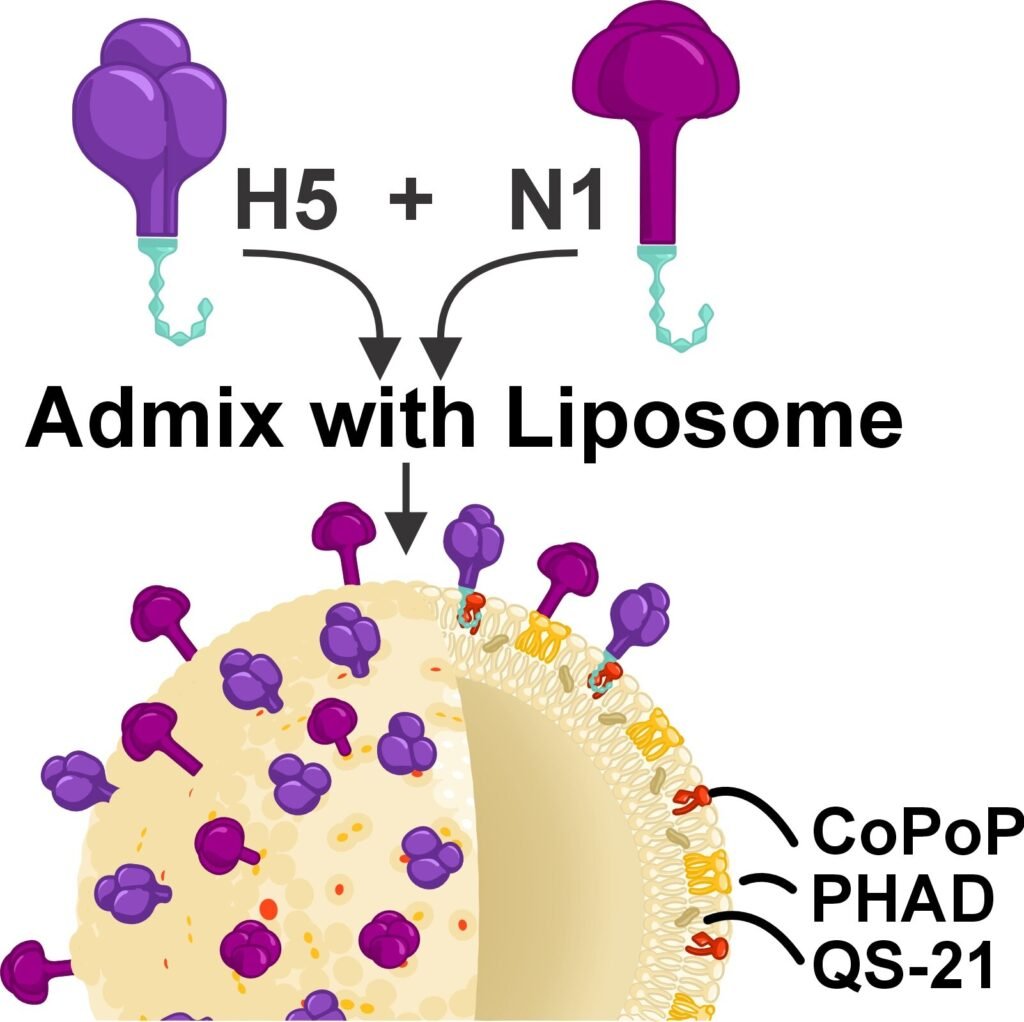The University at Buffalo has been making strides in the development of a new vaccine that has shown promising results in protecting against a deadly variant of the bird flu virus. In a recent study published in the journal Cell Biomaterials, researchers detailed their work on the H5N1 variant known as 2.3.4.4b, which has been responsible for widespread outbreaks in various animal populations.
The vaccine platform focuses on two key proteins, hemagglutinin (H5) and neuraminidase (N1), which are crucial in triggering the immune system’s response to bird flu. Unlike existing vaccines that target only H5, this new platform combines both proteins to provide a more comprehensive defense against the virus.
In tests conducted on mice infected with the 2.3.4.4b variant, the vaccine demonstrated impressive results. When administered alone, the H5 protein offered complete protection with no signs of illness or virus presence in the lungs. The N1 protein, while providing partial protection, was not as effective as H5. Interestingly, the combination of H5 and N1 also provided complete protection, indicating the importance of H5 in developing immunity to bird flu.
The vaccine platform developed by lead author Jonathan Lovell, Ph.D., uses nanoparticles made of cobalt and porphyrin to deliver the H5 and N1 proteins effectively. By incorporating immune-boosting adjuvants into the vaccine, the researchers aim to enhance its potency and efficacy.
One of the key advantages of this vaccine platform is its potential for rapid and efficient production. Unlike traditional egg-based vaccines, this recombinant protein vaccine does not require the use of eggs during manufacturing, making it a more streamlined process.
While the research is still ongoing, the team plans to conduct further studies to optimize the vaccine candidate by testing different doses, schedules, and conditions. The ultimate goal is to develop a potent and versatile vaccine that can combat evolving strains of bird flu and provide robust protection to both humans and animals.
Overall, the experimental bird flu vaccine developed at the University at Buffalo shows great promise in addressing the challenges posed by deadly variants of the virus. With further research and development, this vaccine platform could pave the way for more effective and accessible vaccines to combat bird flu outbreaks in the future.


